This week Westside News has been revealing our most influential and talented leaders in the arts and music, sport, business and the community.
Today, in our last instalment, we take a look at our most brilliant academic minds.
But in an area which has produced a Nobel Prize winner (Indooroopilly State High graduate Peter Doherty) the problem is, who do you leave out?
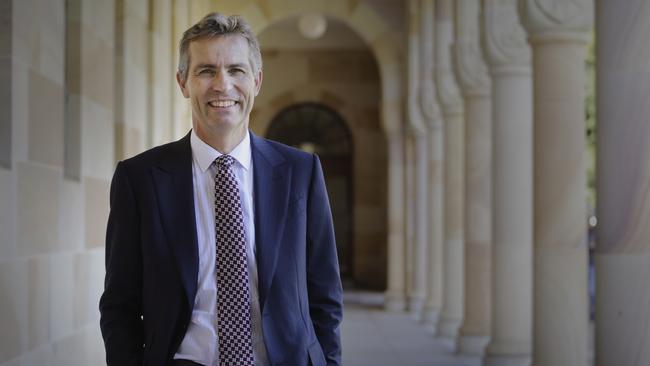
PETER HOJ/MANDY THOMAS
They are the ultimate Brisbane academic power couple.
University of Queensland Vice-Chancellor, Professor Peter Hoj, and his partner, QUT creative industries faculty executive dean, Professor Mandy Thomas, from Taringa, are unquestionably the most influential couple in the state’s tertiary education community.
Prof Hoj, who was awarded Australia’s highest civilian honour this year (Companion of the Order of Australia) announced in June that he would step down in 2020 after seven years in the role.
The university has touched the lives of a huge percentage of westsiders over the years and is arguably the reason the area’s schools are so highly regarded — and property prices are so high.
It’s influence can be felt everywhere, so how well the Vice-Chancellor performs matters.
While there have been plenty of controversies along the way, most recently plans to demolish the Schonell Theatre, a sweet $50 million deal with the Ramsay Centre, the influence of the Confucious Institute and increasing concerns about heavy reliance on revenue from overseas students, Prof Hoj has won plaudits for steadying the ship after a scandal involving the daughter of his predecessor, Paul Greenfield.
And despite massive federal funding cuts, he has managed to keep UQ in the world’s top 50 universities — no mean feat.
Prof Thomas has an impressive career in her own right.
Appointed to her current role in 2014, she was formerly dean of research development at QUT.
The anthropologist’s research has focused on the lives of Vietnamese people under a communist regime.
She has also worked extensively with migrant groups in Australia.
Before joining QUT, Prof Thomas was pro vice-chancellor (research and research training) at ANU and was the Australian Research Council’s executive director humanities and creative arts.
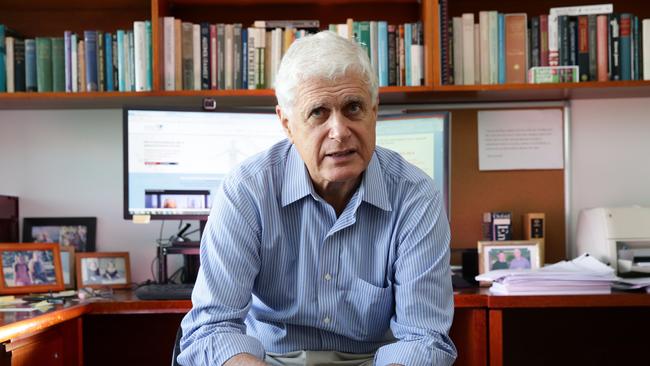
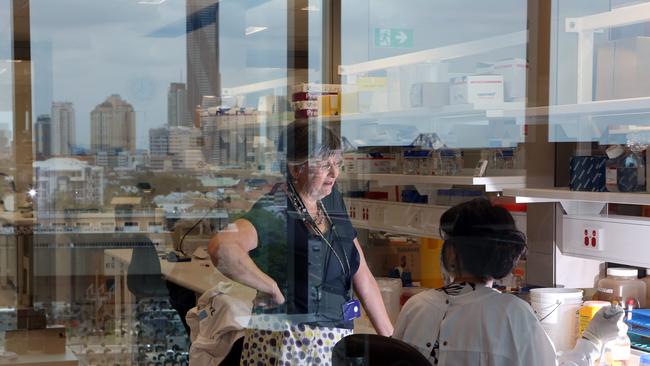
NICK MARTIN/GEORGIA CHENEVIX-TRENCH
QIMR Berghofer’s Nick Martin and Georgia Chenevix-Trench are another high-powered academic couple from the westside.
The Toowong residents are international bywords in research in their fields.
Prof Chenevix-Trench is a fellow of the academies of science, and health and medical sciences.
A globally-known expert on breast cancer genetics, she is part of a consortia which has so far identified 200 areas on the human genome thought to be linked to breast and ovarian cancers.
Her 400-plus scientific papers have advanced knowledge in the area so much the era of personalised treatment for a range of cancers is now looking like becoming a reality, rather than science fiction.
Prof Martin made his name in genetics after founding the Australian Twin Registry in 1978, leading to one of the world’s longest and largest series of studies in the field.
He has published an astonishing 1200 scientific papers and is among the most cited medical scientists in the southern hemisphere.
He is also a fellow of the Australian academies of science, social science, and health and medical sciences.
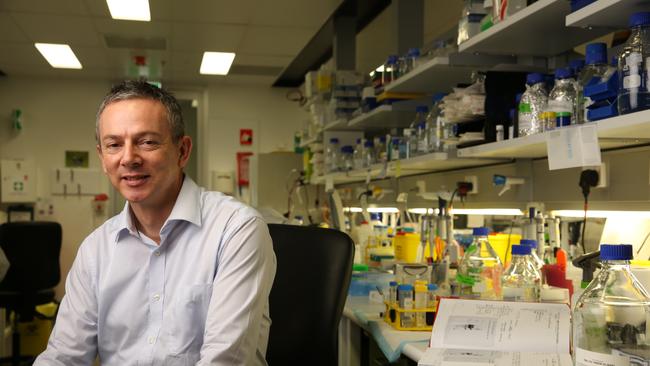
JURGEN GOTZ
Queensland Brain Institute researcher Jurgen Gotz has been helping unlock the mysteries of Alzheimer’s disease using breakthrough ultrasound technology.
Prof Gotz, from Brookfield, said the work done by the QBI’s Clem Jones Centre for Ageing Dementia Research was now being trialled in sheep, after successful rodent trials.
“In two to three years we can start with the first (human) patients. I’m optimistic … it looks very promising,’’ he said.
“We might not be able to find a cure, but we hope we can delay the age of onset and slow the process down so that it may only kick in at the end of our life expectancy.’’
Prof Gotz earned his PhD in immunology in the laboratory of Nobel Laureate Georges Köhler at the renowned Max-Planck-Institute in Germany.
He established his reputation in the Alzheimer’s field as a research group leader at the University of Zurich, before moving to Australia to become Chair of Molecular Biology and Director of the Alzheimer’s and Parkinson’s Laboratory at the Brain and Mind Research Institute at the University of Sydney.
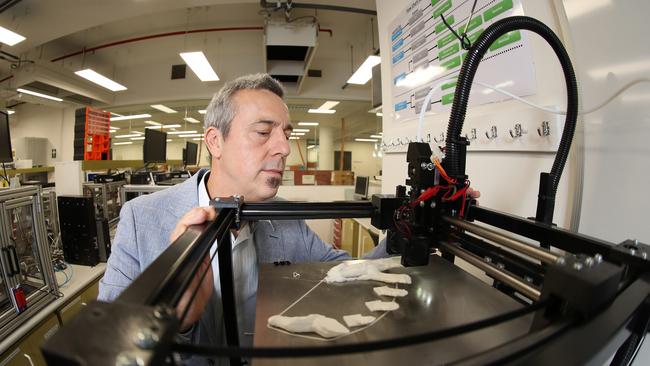
DIETMAR HUTMACHER
When the dream of growing replacement organs in the lab finally comes true, it will be due in no small part to the work of people like QUT’s Prof Dietmar Hutmacher.
The Bellbowrie researcher has built a global reputation based on his unusually broad spread of expertise in biomaterials, biomechanics, medical devices and tissue engineering.
One of his first projects which could come to fruition in the next few years is replacement 3D breast tissue, currently the subject of clinical trials, which would prove life changing for cancer patients.
More than 400 patients have been treated with the bone engineering scaffolds developed by his Singapore-based research group.
He also has an international track record in adult stem cell research and has been working on 3D cell cultures and how to recreate damaged cartilage.
His work has attracted an amazing $10 million in funding from around the world in the past three decades, including many large Australian Research Council and other grants, helped by his strong ties to Germany and Singapore, where he earned his PhD.
He has also won numerous awards including the $50,000 Ramaciotti Medal for Excellence.
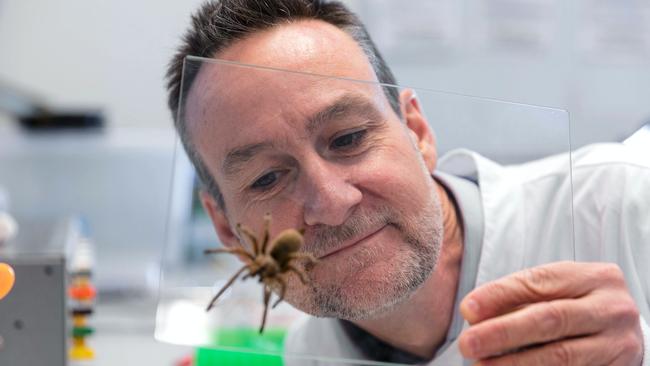
GLENN KING
Chapel Hill biochemist and structural biologist Prof Glenn King is king of critters with a nasty bite.
The Institute of Molecular Bioscience drug development expert’s lab maintains the most extensive collection of venoms in the world, including venoms from more than 600 species of spiders, scorpions, centipedes and assassin bugs.
His main focus is on the development of drugs to treat three pervasive nervous system disorders: chronic pain, epilepsy, and stroke.
His lab is working closely with several pharmaceutical companies to develop drugs for clinical use.
Prof King has also charted new territory in the field of agriculture by developing venom peptides as eco-friendly bioinsecticides.
Vestaron Corporation, the company he founded, sells bioinsecticides in the US market.
Committed to training the next generation of biological scientists, he has trained 30 doctoral students and 24 postdoctoral scientists, with 10 lab alumni having gone on to independent academic positions.
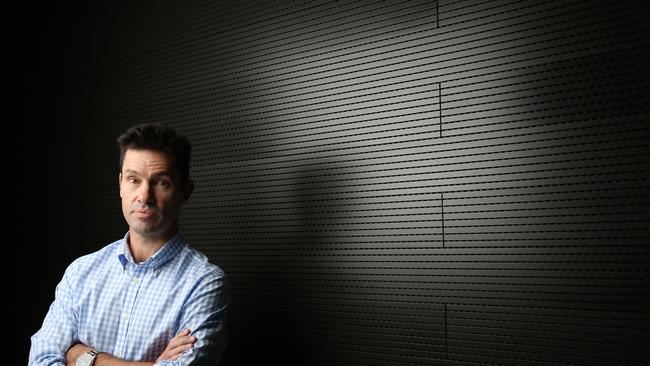
DAVID WHITEMAN
Prof Whiteman, from Toowong, started his career as a medical doctor before making a name for himself in cancer epidemiology, particularly melanoma.
A former Fulbright scholar, the QIMR Berghofer researcher leads a large program of studies on melanoma and other cancers.
That work includes leading the QSkin Study, the world’s largest prospective study of skin cancer, which has almost 44,000 participants.
“Living in Queensland, just walking out to your car in the morning, driving to work, zipping out at lunch to do an errand, that amount of sun exposure that you get in one day, adds up to quite a lot of damage to your skin,” Prof Whiteman said.
He said daily use of sunscreen could cut skin cancer rates by one-third in a state such as Queensland.
A Fellow of the Australian Academy of Health and Medical Sciences and the Australasian Faculty of Public Health Medicine, he is a member of the Academy of the National Health and Medical Research Council of Australia (NHMRC) and currently chairs several high-profile cancer committees and groups.
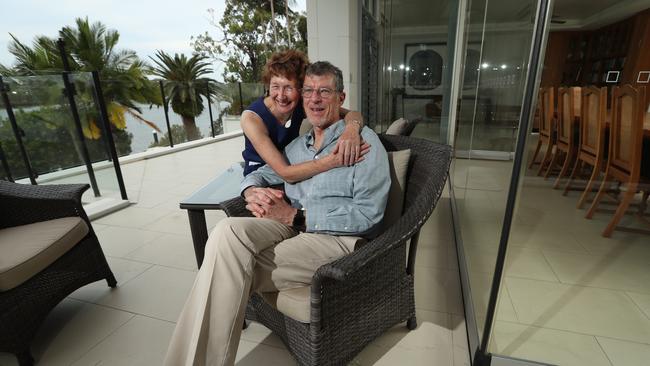
IAN FRAZER
The co-inventor of the Gardasil and Cervarix cervical cancer vaccines has saved countless lives around the world.
Born in Scotland, Prof Frazer developed the HPV vaccine in conjunction with Jian Zhou at the University of Queensland.
In 2006, decades of research culminated in Australian and US approval of the first vaccine, initially targeted at teenage girls.
The immunologist, who lives in St Lucia with wife Caroline, was named Queenslander of the Year in 2006 and Australian of the Year.
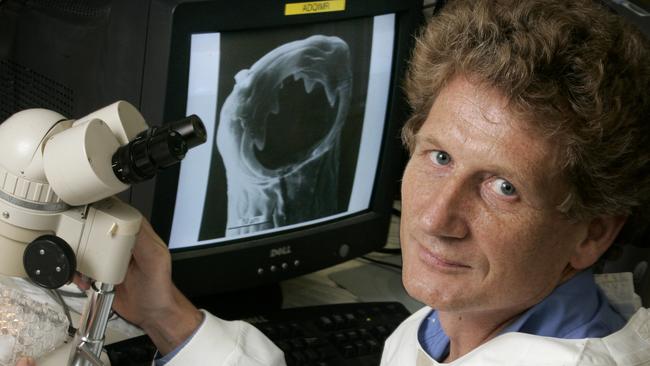
JAMES MCCARTHY
QIMR Berghofer malaria expert Prof James McCarthy, from Ashgrove, leads the Clinical Tropical Medicine laboratory.
His work involves deliberately infecting human volunteers with malaria to evaluate vaccines and drugs which might one day control the disease.
A fellow of the Australian Academy of Health and Medical Sciences and Royal Australasian College of Physicians, he has won numerous awards and is regularly asked to speak at conferences.
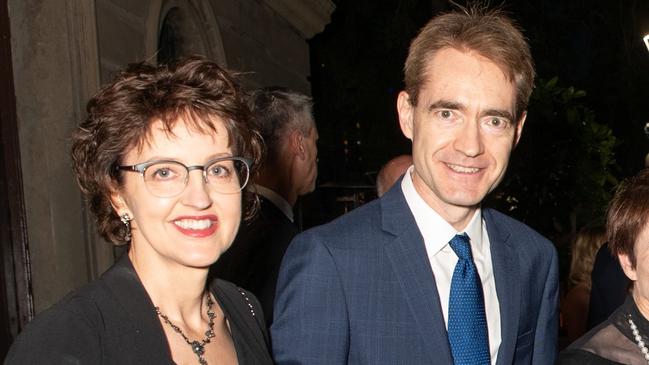
LINDA RICHARDS/GEOFF GOODHILL
St Lucia’s Prof Linda Richards and Prof Geoff Goodhill are another University of Queensland power research couple.
Prof Richards’s lab investigates how the brain becomes “wired up’’ during development.
It focuses on the development of the cerebral cortex, a region of the brain where all higher order cognition is processed.
She is part of a consortium bringing data together from laboratories in Australia and overseas to help identify genes causing human brain disorders.
Prof Richards was made an Officer of the Order of Australia this year for her research, is a fellow of two prestigious academies and is on the Federal Government’s Million Minds Mission Advisory Panel.
Her husband is an English mathematician who worked in Washington DC for a decade before moving to UQ in 2005.
He has published more than 100 papers, mainly on how the brain processes information, particularly during development.
In 2014 he received the prestigious Paxinos-Watson prize and has been awarded an impressive 11 Australian Research Council Discovery and NHMRC Project grants, a Simons Foundation grant and many other national and international grants.
A great believer in science education, he has given a TEDx talk and written for The Conversation.
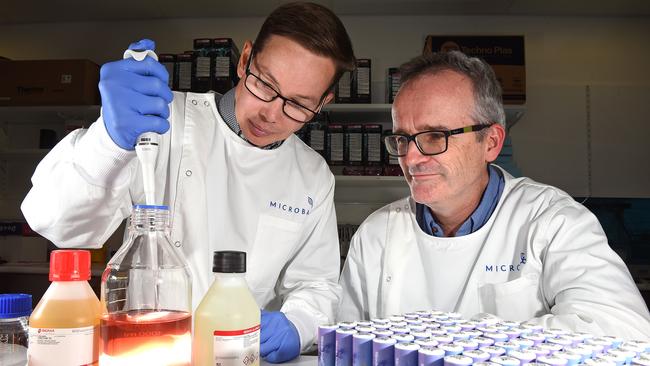
PHILIP HUGENHOLTZ/GENE TYSON
Indooroopilly microbiologist, Profs Philip Hugenholtz, and Gene Tyson (who recently moved to the Gold Coast but is still based at the University of Queensland), are at the forefront of global research into the gut microbiome — the complex community of bacteria which inhabit our lower intestinal tract.
While it doesn’t sound sexy, it is one of the world’s hot new fields of medical research.
It is now thought gut bacteria may be involved in everything from depression, obesity and heart disease to diabetes, so understanding what species are in there and how they interact has become a major new area of study.
Founders of the University of Queensland’s Australian Centre for Ecogenomics, the pair has published numerous scientific papers in prestigious journals and started a spin-off company, Microba, which is marketing a home microbiome test kit.
Cervical cancer vaccine co-inventor Prof Ian Frazer is one of about 30 investors who have chipped in $7 million in Series A funding for the start-up, which has also attracted $10 million in Series B funding — a large component of which came from cornerstone investor, multinational Korean biotech player Macrogen.
Prof Hugenholtz, who has long held an interest in studying bacteria which cannot be grown in the laboratory, was awarded a rare ARC Laureate Fellowship to obtain 100,000 genomes from what he likes to call “microbial dark matter’’.
CEO Blake Wills is a westsider of note himself.
Only 30 years old and a new dad, he is already a proven leader with executive experience across the finance, life sciences and education sectors.
Notably, Mr Wills was Chief Operating Officer of an ASX-listed company which, during his tenure, grew to more than 300 employees.
SEE MORE QUEST COMMUNITY NEWS POWER LISTS

Add your comment to this story
To join the conversation, please log in. Don't have an account? Register
Join the conversation, you are commenting as Logout
‘Sickening, horrific’: Childcare worker charged with indecent treatment of child at Brisbane centre
A worker at a South East Queensland childcare centre has been charged with the indecent treatment of a young child at the facility.
No result after nine-hour meeting of Brisbane bayside council
A bayside council meeting descended into legal wrangling, bickering, and adjournments on Wednesday, with a nine-hour standoff over whether the Deputy Mayor could vote on a conduct report into the Mayor.